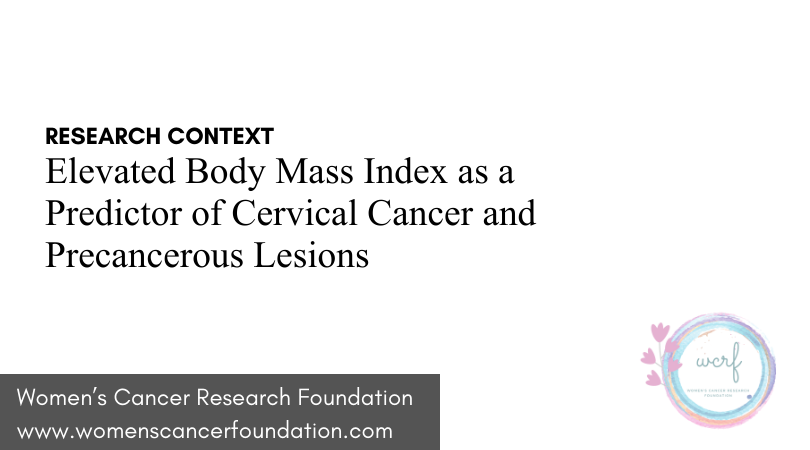Endometrial Cancer Risk in Women Diagnosed with a Germline BRCA1 or BRCA2 Mutation
- Women's Cancer Research Foundation

- Apr 7, 2021
- 2 min read
BRCA1 and BRCA2 are genes that produce proteins that help repair damaged DNA (a person’s unique genetic code). Everyone has two copies of each of these genes, which are inherited from their parents. BRCA1 and BRCA2 genes are sometimes called tumor suppressor genes because they repair cell damage and prevent the development of breast and ovarian cancer. However, when the BRCA1 and BRCA2 genes mutate or become altered, cancers can develop.

For example, women with an altered BRCA1 or BRCA2 gene have a 50 to 85% risk of developing breast cancer by age 70. In ovarian cancer, the risk of developing this disease in women with an altered BRCA1 or BRCA2 gene is 40 to 60% by age 85. Fortunately, PARP inhibitors (a type of targeted therapy that blocks the protein used to repair damaged DNA) are particularly effective at treating breast and ovarian cancer patients with an inherited BRCA1 or BRCA2 mutation.
The results from a large Dutch study reported that patients with a mutated BRCA1 or BRCA 2 gene were found to be at 2-to 3-fold higher risk for developing endometrial cancer. These results have significant screening and clinical implications for women; and if a mutated BRCA1 or BRCA2 gene is identified, an extensive discussion with the patient’s treating physician is recommended.
About Women’s Cancer Research Foundation The Women’s Cancer Research Foundation (WCRF) is one of Southern California’s and the nation’s most active research organizations for female cancers. We are dedicated to serving the interests of patients, families, and friends affected by women’s cancers. WCRF partners with physician-scientists nationally to make differences in women’s lives by offering hope, strength, and progress.
361 Hospital Road, Suite 422
Newport Beach, CA 92663
PH: (949) 642-5165





Comments